About Us
Mission and Values
Our Mission
Early childhood is a key stage during which the well-being and overall harmonious development of young children are paramount.
Every child should enjoy a welcoming, respectful and engaging environment in their Educational Childcare Services (ECS) where they can thrive and live wonderful experiences that will leave a positive impact on their early childhood.
Jardin d'Éveil has 3 main missions:
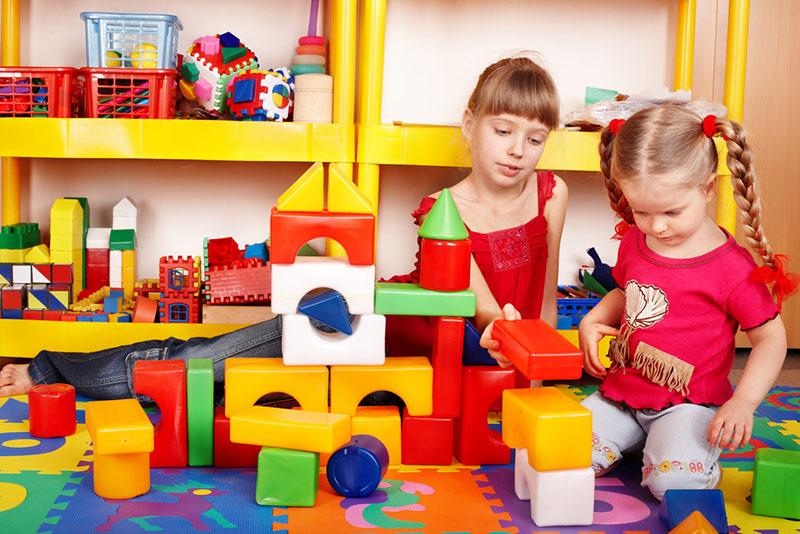
1.Ensuring the well-being, health and safety of young children through a warm welcome, basic personalized care, respect and empathy whatever the challenges and difficulties, adapting the day's activities to the pace of each child, and working as a team with the parents by being understanding of their situation. Our ECS also watches over the health and safety of young children by meeting the required safety and quality standards and applying the recommended public health measures to prevent the spread of infections.

2.Providing an environment that promotes the child's overall development: Given that early childhood development is a global process that encompasses all areas of development (physical & motor, cognitive, language and social & emotional), our ECS implements teaching approaches that expose children to a variety of experiences that foster their overall development.

3.Preventing the onset of problems related to early childhood development and promoting social inclusion: we closely supervise each child daily to detect any learning or developmental problem as early as possible and to inform the parents for immediate action.
By meeting these three goals, we are also implementing the necessary strategies to properly prepare your child's transition to school.
Our Values
Below is an overview of the values we advocate: respect for oneself, others and the environment, well-being, safety, autonomy, self-esteem, sharing & solidarity and child uniqueness.
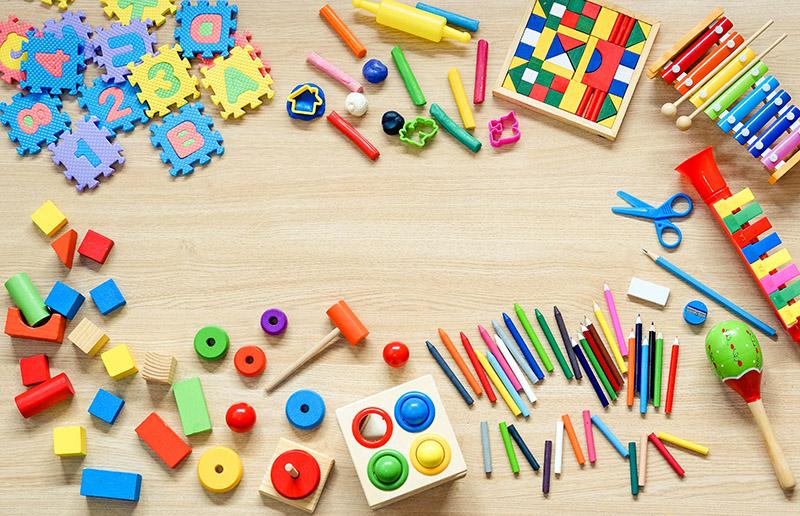
Respect:
Our daycare center promotes respect for oneself, others and the environment in which the child evolves. Listening to their peers, giving up their seat, waiting for their turn during a discussion and respecting the daycare rules are excellent ways to achieve this.

Well-Being:
Several parameters are responsible for the feeling of well-being in children, namely security, attention, care, love, affection, pleasure, availability, listening and stability.
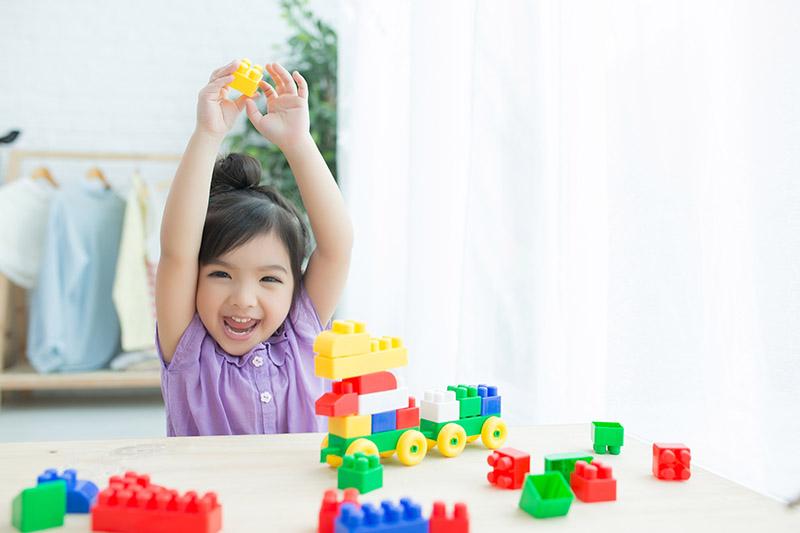
Autonomy:
Our environment fosters the development of autonomy and responsibility. We value effort, leave room for creativity, encourage initiative and more.
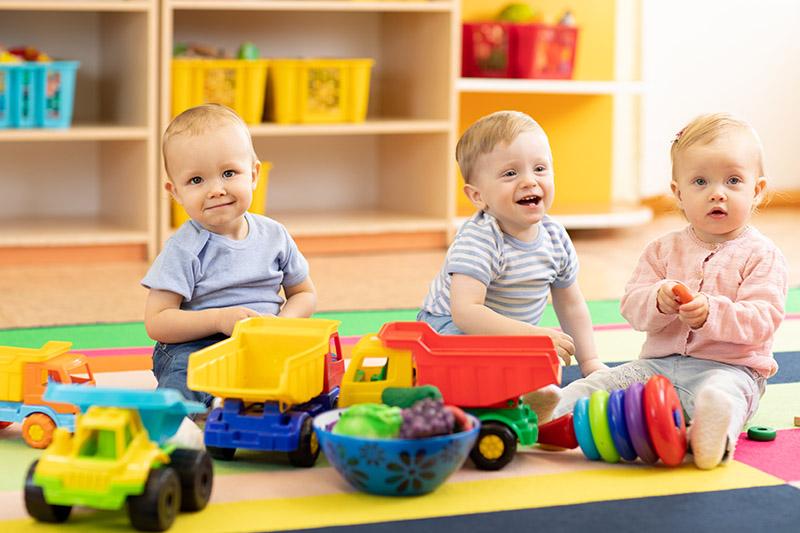
Self-Esteem
Self-esteem is defined as a person's subjective evaluation of their own worth, and adults play a major role in children's self-perception. It is the foundation of personal development and a life-long process.
Children can only thrive through a meaningful relationship with the adult. Self-esteem is what shapes the child's personality and helps them develop their autonomy.
This is why we promote self-worth and encouragements and focus on the importance of expressing one's feelings, opinions and tastes.
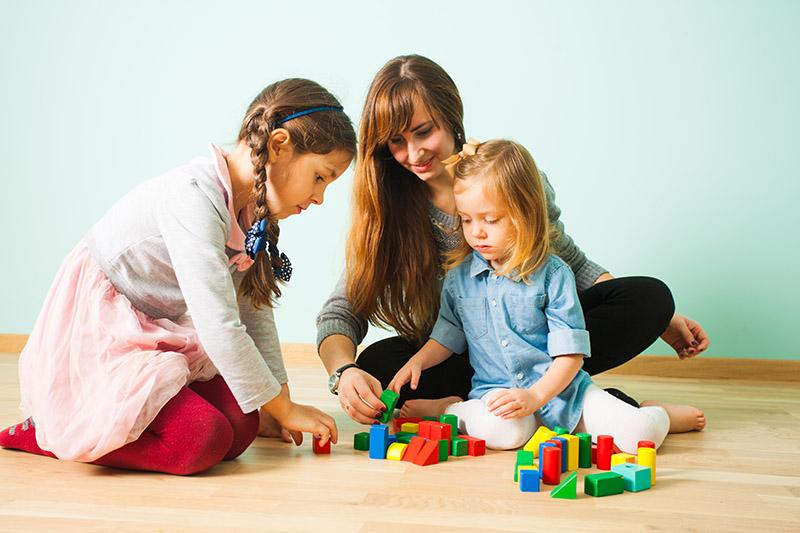
Sharing and Solidarity:
Our daycare offers the first-hand experience of community life, whereby children develop their sense of solidarity and cooperation.
To achieve that, kids are encouraged to interact with each other through games and discussions, express their emotions, and learn the basics of community life through sharing, generosity, and listening.
Our priority at Jardin d'Éveil is to provide your child with a safe, caring and stimulating environment.
Our timetable allows for age-appropriate supervised activities and free play whose aim is to:
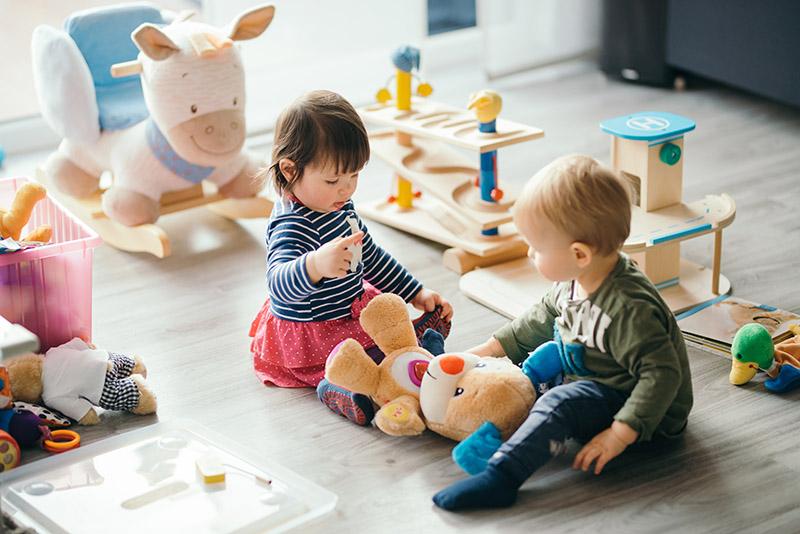
1.Foster overall development by providing children with all the necessary tools so they can fully explore all aspects of their personality, including their emotional, social, moral, cognitive, language, physical and motor skills
2.Help the child to adapt gradually and smoothly to community life
Respecting the Child’s Uniqueness:
Each child is unique and brings in their personal life experiences. We must embrace their pace of development, interests, tastes, feelings and personality without being judgmental.

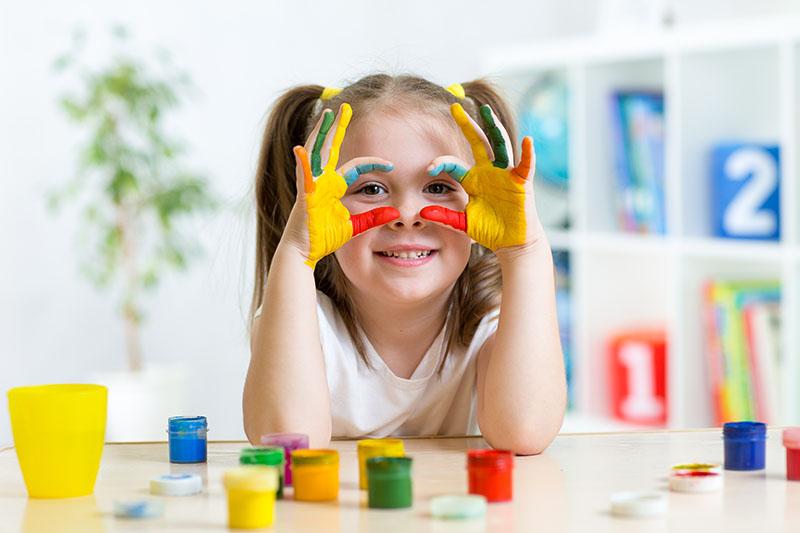
Discovery:
We encourage learning through play and trial and error while focusing on the process rather than the outcome.
Our daycare raises awareness about diversity (race, gender, disability, etc.) and the challenges facing our natural resources (waste, pollution, recycling, composting, etc.).
Teaching
The Jardin d'Éveil daycare's educational program is inspired by the Ministry of Family and Seniors' program "Accueillir la petite enfance" and is essentially focused on the child's global development to promote his or her full potential.
Each day, there is a period of directed activity according to the theme of the week and a period of free play according to the corners: reading corner, plastic art corner, symbolic games corner, blocks corner, cars corner, animals corner, dress-up corner and reading corner, ...
Daily outings are a time of indulgence that allows children to have fun and develop their gross motor skills.
Transitional and routine activities occupy a large part of the day and are important because they are landmarks that give the child security in his daily life.
These activities include hygiene, diaper changes, snacking and eating, napping, tidying up, greeting and leaving, waiting and moving...
It should be noted that these activities have a positive impact on the child's development.
(Acquire healthy lifestyle habits, encourage autonomy, promote a sense of competence, develop fine motor skills, develop mutual aid, develop dexterity, promote self-esteem, develop gross motor skills, understand and follow instructions, ability to wait one's turn, develop language, create an emotional bond with the educator ....)
Our daily outings are enjoyable moments where children have fun in the open air and develop their motor skills.
Transitions and routines are other ways of learning in a fun and entertaining way.
Typical daily schedule for children aged 18 months to 5 years
7:00 am - 7:30 am
Opening of the daycare, welcome and free activities
7:30 am to 8:00
Physical activities through games such as Simon says, Red light/Green light, etc.)
8.00 am to 8.30 am
Song and rhyme of the week
8:30 am to 9:00 am
Hand washing and hygiene
9:00 am to 9:30 am
Snack and discussion.
9:30 am to 10:15 am
- Teacher-directed activities (age-appropriate crafts, painting, drawing activities according to the week's theme)
- Pre-reading and pre-writing for 4-5-year-olds
10.15 am to 11.00 am
Outdoor activities
11:15 am to 11:30 am
Hand washing and hygiene
11.30 am to 12.15 pm
Lunch
12:15 pm to 12:30 pm
Hand washing and hygiene and getting ready for nap time (toilet, nappies, mattress...)
12:30 pm to 1:00 pm
Storytime
1:00 pm to 2:45 pm
Nap for the little ones and relaxation for the 4-5-year-olds
2:45 pm to 3:45 pm
Progressive wake-up, hand washing and hygiene and snack
3:45 pm to 4:30 pm
Activities to foster the child's overall development or outdoor games depending on the weather and the season
4:30 to 6:00 pm
- Entertainment, puzzles, storytelling, dancing, singing, role-playing, matching games, etc.
- Gradual departure, merging of groups and closing of the daycare
Our Teaching Approach
Like all educational childcare services in Québec, Jardin d'Éveil must follow an educational program as required by the law and regulations on early childhood services.
This educational programme should include activities that favour the child's overall development (physical, motor, cognitive, social, emotional and language), help with the gradual and smooth adaptation to community life and facilitate the transition to school.
The curriculum also aims to promote a healthy lifestyle and eating habits.
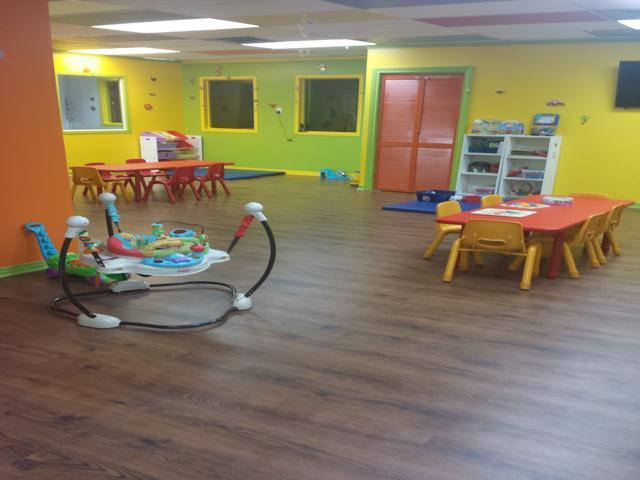
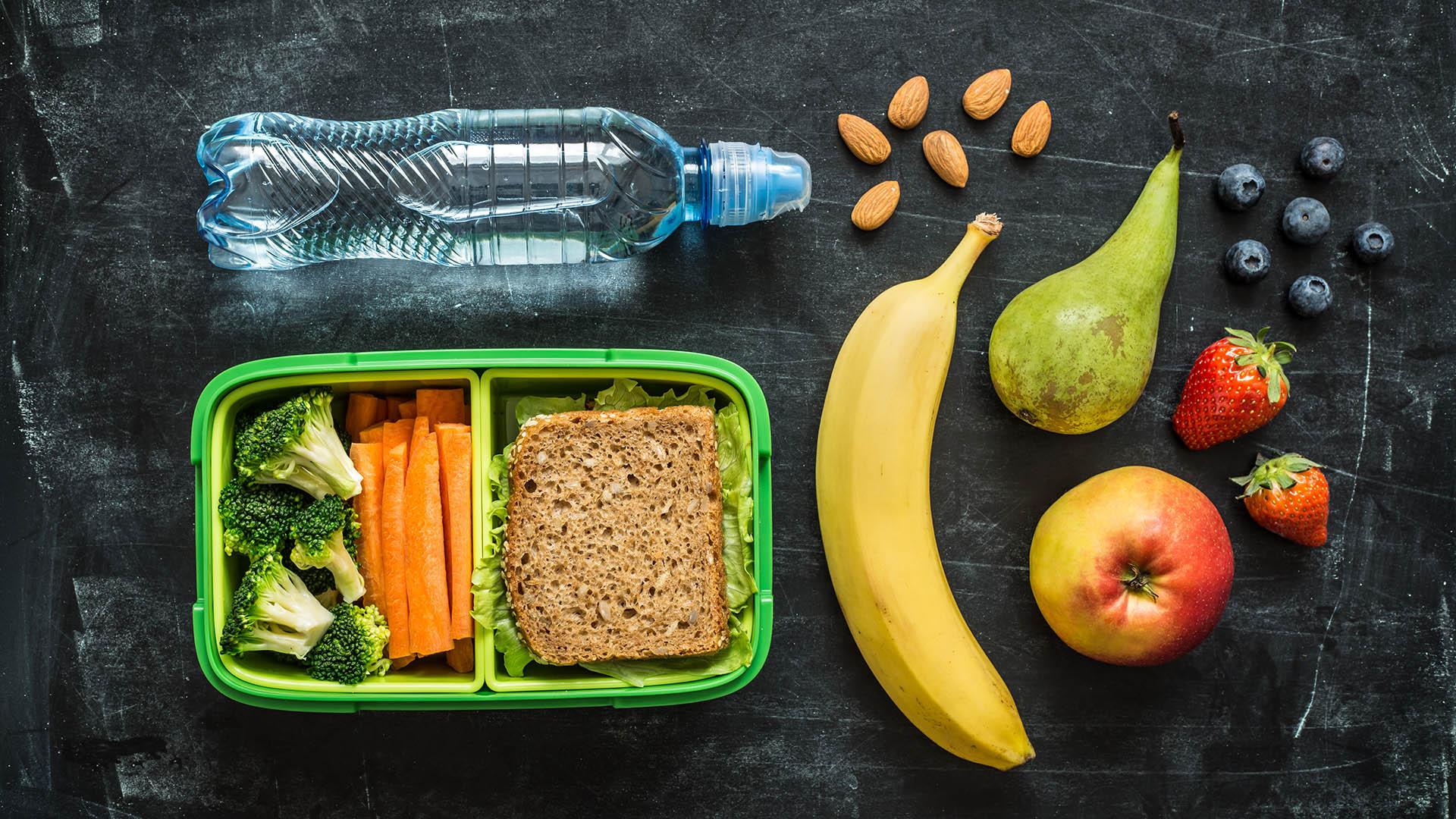
Healthy Eating Habits
Jardin d'Éveil is aware of its vital role in children's nutrition. Considering that kids eat one meal and two snacks a day, it is quite obvious that we have a great share of responsibility for the effects of the diet on their development.
In an effort to provide an environment conducive to healthy eating, our daycare offers a balanced menu that complies with the recommendations of Canada's Food Guide. We try to use healthy foods with no added sugar, preservatives or additives whenever possible. Milk is served daily at lunchtime.
Educators sit with the children during lunch to discuss a topic relevant to their meal (the health benefits of each food, vitamins, colour, etc.). Desserts meet all our quality standards and are served to all kids with no exceptions.
Food-related activities (texture, colour, taste, smell, discovering new fruits and vegetables, cookery books) are organized together with the cook, whose presence draws children's attention and raises their interest.
A Healthy Lifestyle
In addition to a healthy diet, children should exercise regularly during the day. This can be achieved through active play to maximize their motor development, whether in terms of gross or fine motor skills.
Jardin d'Éveil features a large fenced and fully secure playground with balls, buggies, tricycles, etc. When the weather is fine, our educators plan outdoor activities in the open air.
If the weather conditions are not suitable for outdoor play, we free up a room where children can engage in motor skills games (balls, hoops, dancing, etc.).
Babies can also crawl and climb in the nursery.
After all that running around and burning off so much energy, it is essential for kids to relax (yoga, whispering, relaxation, etc.).
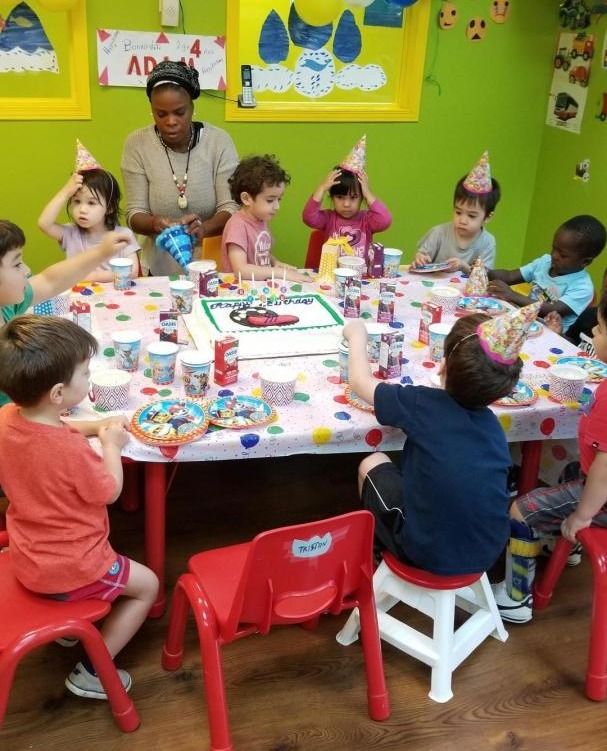
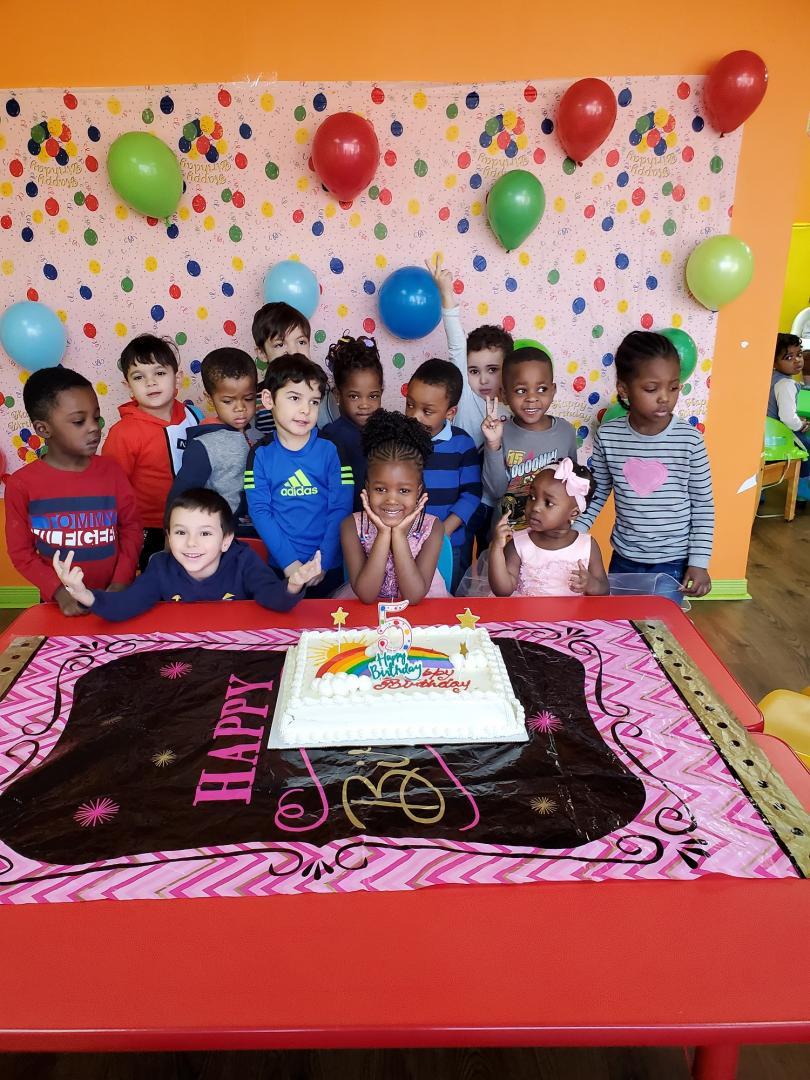
Activity structure
Coordinating activities and other life events is a way of supporting, guiding, assisting and offering opportunities for kids to learn. This does not mean that the educator puts herself in the limelight and leads the activity as if it were a show. It is simply a matter of diversifying the modes of communication and animation to reach as many children as possible.
We differentiate between routine & transitional activities and play periods: Children need guidance and routine to feel secure in their daycare. A standard daily schedule covering welcoming, transition, mealtime, snacks, naptime, walks, hand washing and hygiene, dressing and going home is a way of stimulating children's autonomy, motor and language skills.
Free play periods are designed to encourage kids to play and share the facility's equipment with their peers. The start and end of the school day are often the best times for free play, leaving the educator ample time to discuss with the parents who wish to do so.
As for nursery activities, they are strongly inspired by active learning. To this end, we provide the toddlers with adapted resources that will stimulate them to explore their environment. Moreover, our dedicated educators are always by their side to guide them in exploring their surroundings.
Children's immediate environment is designed in such a way that they can easily access a wide range of stimulating and challenging age and developmentally appropriate equipment and toys. Storage at the child's level allows the user to explore, manipulate, store, classify and sort the objects.
The children's area is divided into different workshop spaces, where the little ones can explore various materials. Please note that our educators adapt the equipment to the topics they want the kids to explore.
You can rest assured that our equipment is fully secure, in excellent condition and adapted to your every child's stage of development. They offer a range of possibilities for handling and exploration, thus stimulating creativity. Besides, our materials are regularly renewed to introduce change and promote new experiences so as to keep the kids engaged.
Summary table of learning objectives for each activity corner
| Activity Corner | Learning Objectives |
|
Buildig blocks corner |
Encourages children to: Build structures. Represent the world around them and understand it better. Experiment with ideas and introduce mathematical concepts. Discover and deepen their understanding of spatial relationships. |
|
Home/Imitation Corner |
Encourages children to: Deepen their understanding of the world. Imitate role models by acting out the roles of important people in their lives. Experience the role of adults. Express emotions. Solve problems that are familiar to them. |
|
Arts Corner |
Encourages children to: Develop their creativity by using materials that let their imagination run free. Develop problem solving and creative thinking skills. |
|
Book Corner |
Encourages children to: Develop pre-reading and literacy skills. Learn to love books. |
|
Workshops Corner |
Encourages children to: Use building materials and tools. Build things and undo them. Experiment and solve problems. |
|
Science corner |
Encourages children to: Carry out experiments. Explore new ideas. Learn about nature and the world around them. Discover and understand some of the principles of science |
|
Table games corner |
Encourages children to: Develop gross motor skills (running and climbing), strengthen upper and lower body and improve balance and coordination. |
|
Outdoor Corner and Motor Skills Training Room |
Encourages children to: Develop gross motor skills (running and climbing), strengthen upper and lower body and improve balance and coordination. |
|
Music Corner |
Encourages children to: Develop their rhythm through movement. Express themselves through music and singing. Relaxation |
|
Sand and water corner |
Encourages children to: Experiment with different principles using solid and liquid substances. Explore connections and ideas by making holes, filling, emptying, mixing, etc. |
Parent Information Sheets
Bedtime Tips
- Put your child to bed at set times
- You can leave a nightlight on if your child is afraid of the dark
- Let your child sleep with a plush or blankie if that makes them feel more secure
- Encourage your child to engage in soothing and relaxing games before bedtime
- You can give your child a massage (with a ball or a feather)
- You can play quiet music
- Tell a story
- Establish a routine
- The next morning, positively reinforce the child's behaviour of sleeping in their own bed and going to sleep easily
- Keep calm and be patient
References:
Adapting to daycare life
- Talk to your child's lifestyle, interests, what they like to eat with their educator
- Comfort and reassure your child
- Specify when you will pick up your child with words and time cues (after the nap)
- Create a morning routine with the same actions to say goodbye
- Speak positively about the daycare when you are at home, display their crafts and pictures of their school environment
- Take time with your child when they come home. This time allows your child to feel loved and reassured
- Bring transitional items to the daycare, such as a blankie or clothing that smells like you
- Create a bond between you and your child's educator
Reference:
Feeding and Taste Development
- Let your child serve themselves, or ask them to quantify their level of hunger (small, medium, large)
- Offer healthy snacks and desserts instead of sweet treats. They are an integral part of meals.
- Avoid distractions such as tablets and other electronic devices
- Let your child become familiar with any new food item
- Use precise vocabulary to talk about and describe foods. Name the colors, flavors, temperature, etc.
- Avoid saying «it's good»; instead encourage your child to determine for themselves which qualities they prefer
- Be a role model at mealtime
- If your child refuses to eat, stay calm and positive
Reference:
www.nospetitsmangeurs.org/la-neophobie-alimentaire
Language Development
- Tell stories and repeat the same story more than once
- Sing children's songs
- Recite nursery rhymes
- Play games by taking turns
- Imitate animal sounds
- Add actions to your words
- Avoid asking close-ended yes/no questions
- Speak slowly and allow for silence
- Do not ask your child to repeat a word
- Enjoy communicating with your child
Reference:
www.laboiteaparoles.com/boite-a-outils/la-strategie-oae
Disruptive Behaviours
- If your child is having a tantrum, wait for them to calm down. They are not ready to listen to you
- Help your child to express how they feel
- Do not go back on a behavior after it has been addressed. You need to protect your child's self-esteem
- Reassure your child that you love them
- Disassociate your child's behavior. Avoid telling your child that he/she is not nice, that he/she is mean, etc.
- Do not humiliate them (imitate them, laugh at them, tell them they are acting like a baby, etc.)
- Verbal reasoning does not help
- Find solutions with your child to keep them calm (deep breathing, a soft toy, drinking water, etc.)
- Put yourself in your child's shoes to try to understand them
- Set clear, consistent and coherent limits
Reference: Meeting the Challenge, Barbara Kaiser and Judy Sklar Rasminsky, 1999
Lively Children
- Make time to play with them, let them take the lead and only take the initiative if they ask you to
- Encourage lots of physical activity
- Enroll them in sports classes
- Establish daily routines that help with sleep
- Speak slowly and clearly when giving instructions to your child
- Limit the time spent in front of the TV, computer or mobile devices
- Help your child express themselves and identify their emotions
- Praise your child once a day
Reference:
The importance of gender-neutral toys
- Offer your child a variety of toys to stimulate all areas of development
- Be a role model yourself by sharing different games with your child. Imitation games are especially meaningful
- Encourage gender-neutral, color-neutral toys
- Your daughter wants to dress up as a superhero, support her
- Your son wants to dress up as a princess and have nail polish, support him
- Be mindful of your own biases so you don't pass them on to your child
- Look for toys at local thrift stores, libraries and toy stores
- Educate others about the importance of toys of various kinds to your child's development
- Have fun with your child because playing is magic!
References:
Introduction to reading
- Offer a book that makes children want to look at it instantly
- Choose books with short stories and little to no text.
- Any time is a good time to pick up a book
- Turn the book into an object. Your child will want to reproduce these movements and this will increase their interest (e.g. banging on the book cover as if it were a door).
- Place an object between two pages of a book, like a treasure to be uncovered while turning the pages
- Tell the same story several times if a child asks for it
- If children feel like talking during story time, this isjust as good as listening
References:
 www.education.gouv.qc.ca
www.education.gouv.qc.ca
